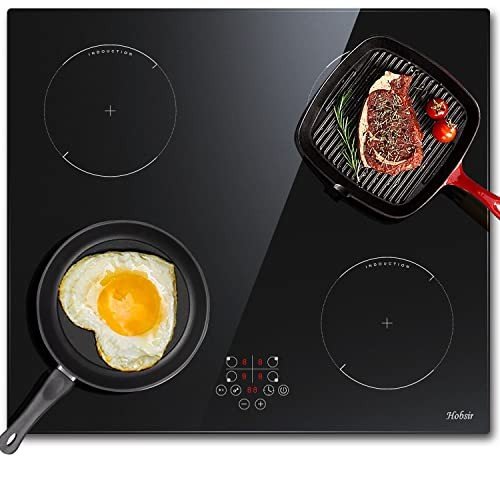15 Gifts For The Sales Ovens Lover In Your Life
The Comprehensive Guide to Sales Ovens: Understanding Their Importance, Types, and Best Practices
Sales ovens, a classification of business cooking equipment, are key gamers in the culinary and foodservice industry. These home appliances, created to prepare food in large amounts effectively, are essential in restaurants, catering services, and other food establishments. This article dives into the significance of sales ovens, their types, and best practices for choosing and using them effectively.
What Are Sales Ovens?
Sales ovens, broadly defined, are cooking gadgets utilized mostly in industrial kitchen areas to prepare, bake, or heat numerous food items at scale. Their style permits them to deal with higher volume cooking compared to standard domestic ovens. Given Built In Oven On Sale of food service, sales ovens typically include sophisticated technologies that promote speed, effectiveness, and even cooking.
Value of Sales Ovens in the Food Industry
Sales ovens play a pivotal role in food production for lots of reasons:
- Efficiency: Sales ovens can prepare food faster and uniformly than traditional ovens, enabling chefs to prepare meals in less time.
- Consistency: With precise temperature level controls, sales ovens ensure that the food is cooked evenly whenever, preserving quality across thousands of servings.
- Flexibility: Many sales ovens can handle various cooking methods including baking, roasting, broiling, and even steaming, making them appropriate for varied menus.
- Energy Savings: Modern sales ovens are often created to be energy-efficient, lowering functional costs for businesses.
Types of Sales Ovens
The market uses a range of sales ovens, each matched for specific cooking needs and kinds of food. Here are the most typical types:
Type of Oven
Description
Best For
Convection Ovens
Use a fan to flow hot air, making sure even cooking.
Baking and roasting products.
Combi-Ovens
A combination of convection and steam cooking, providing versatility in cooking techniques.
Diverse menus requiring steaming and baking.
Conveyor Ovens
Utilize a moving belt to continuously prepare food, suitable for high-volume operations.
Fast food and pizza.
Deck Ovens
Feature separate compartments (decks) that can be independently controlled, using high efficiency.
Artisan bread and pastries.
Rotisserie Ovens
Created to slowly roast meat on a spit, offering tender and juicy results.
Roasted meats.
Picking the Right Sales Oven
Selecting the appropriate sales oven for a particular business requires factor to consider of a number of elements:
- Volume Needs: Assess the volume of food that requires to be prepared. Higher volume indicates going with conveyor or combi-ovens.
- Menu Diversity: Understanding what kind of dishes will be prepared can guide the selection procedure. For instance, a bakery might need a deck oven, while a restaurant might benefit from a convection oven.
- Area Availability: Measure kitchen area to ensure the ovens fit effectively and have required ventilation.
- Spending plan: Commercial ovens can vary significantly in price, so develop a budget that considers long-term operational savings.
- Energy Efficiency: Opt for ovens that have energy ratings to keep energy costs workable.
Best Practices for Using Sales Ovens
Successfully operating a sales oven includes more than basic use. Here are some best practices to remember:
Regular Maintenance: Schedule routine upkeep to clean and examine the functionality of the oven. This makes sure durability and performance.
Pre-heating: Always preheat the oven to the desired temperature level before putting food inside for consistent cooking outcomes.
Use Thermometers: For precision, utilize an oven thermometer to guarantee that temperatures remain consistent, particularly for baking.
Follow Cooking Times: Adhere to suggested cooking times based upon the type of food being prepared. Modifications might be needed for various ovens.
Avoid Overcrowding: Ensure adequate area around food items in the oven to permit correct air blood circulation.
The Future of Sales Ovens
As innovation advances, so do the capabilities of sales ovens. Innovations such as wise technology, energy-efficient designs, and enhanced security functions are becoming more prominent. These advancements promise to enhance cooking performance while likewise satisfying sustainability objectives.
Frequently Asked Questions about Sales Ovens
Q1: How do I clean my sales oven?
A: Regular cleaning includes removing any food debris, wiping down surface areas with non-corrosive cleaners, and following particular cleansing suggestions from the manufacturer.
Q2: What's the life expectancy of a business oven?
A: Typically, a well-maintained business oven can last anywhere from 10 to 20 years, depending on usage and upkeep.
Q3: Can sales ovens be utilized for baking?
A: Yes, lots of kinds of sales ovens, particularly convection and deck ovens, are particularly created for baking a variety of items.
Q4: Are there energy-efficient alternatives for sales ovens?
A: Yes, a number of makers provide energy-efficient designs that minimize energy usage without compromising efficiency.
Q5: How typically should I carry out maintenance on my sales oven?
A: It's suggested to carry out routine upkeep checks on a monthly basis or quarter, depending upon usage levels. In addition, a comprehensive examination must occur a minimum of every year.
Sales ovens are important in the contemporary cooking landscape. Their ability to cook large quantities of food efficiently makes them essential for restaurants, catering services, and other food establishments. By understanding the different types, selecting the ideal oven, and sticking to best practices, food service organizations can enhance their cooking procedures, enhance their offerings, and ultimately delight their consumers with outstanding cooking creations.
